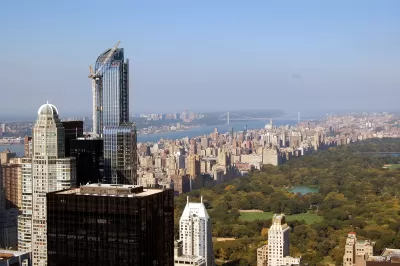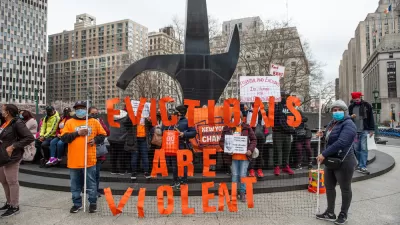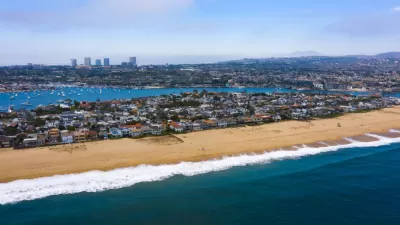A pied-à-terre tax proposed by New York State legislators faced the scrutiny of the Independent Budget Office.

"A tax on luxury second homes in New York City would yield far less revenue than expected," reports Erin Hudson, sharing findings of a report by the New York City Independent Budget Office (IBO).
The IBO reduced its revenue estimate for a proposed pied-à-terre tax by 41 percent, estimating total revenue generated to total $232 million. "George Sweeting, deputy director of IBO, said the agency realized far fewer homes than originally thought would qualify as pieds-à-terre worth $5 million or more," Hudson explains of the report's findings.
Still, Sweeting also said that with so many unknowns, the numbers could change again. As proposed by State Senator Brad Hoylan (D-Manhattan), the pied-à-terre tax would increase property taxes for one- to -three-family homes worth $5 million or more if the homes are not a primary residence.
The state, which would approve any potential pied-à-terre tax, has been flirting with the idea for a few years now, dating back to 2019 and the budget process that culminated in March 2020.
FULL STORY: Pied-à-terre tax revenue estimate slashed by 41%

Montreal Mall to Become 6,000 Housing Units
Place Versailles will be transformed into a mixed-use complex over the next 25 years.

Planetizen Federal Action Tracker
A weekly monitor of how Trump’s orders and actions are impacting planners and planning in America.

DARTSpace Platform Streamlines Dallas TOD Application Process
The Dallas transit agency hopes a shorter permitting timeline will boost transit-oriented development around rail stations.

Study: 4% of Truckers Lack a Valid Commercial License
Over 56% of inspected trucks had other violations.

Chicago Judge Orders Thousands of Accessible Ped Signals
Only 3% of the city's crossing signals are currently accessible to blind pedestrians.

Philadelphia Swaps Car Lanes for Bikeways in Unanimous Vote
The project will transform one of the handful of streets responsible for 80% of the city’s major crashes.
Urban Design for Planners 1: Software Tools
This six-course series explores essential urban design concepts using open source software and equips planners with the tools they need to participate fully in the urban design process.
Planning for Universal Design
Learn the tools for implementing Universal Design in planning regulations.
City of Mt Shasta
City of Camden Redevelopment Agency
City of Astoria
Transportation Research & Education Center (TREC) at Portland State University
US High Speed Rail Association
City of Camden Redevelopment Agency
Municipality of Princeton (NJ)





























